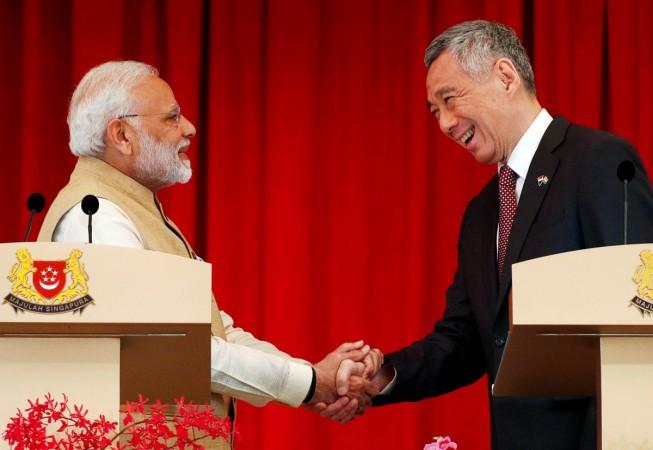
India's success in approaching financial inclusion through the technology route is a model for the world's low- and medium-income nations. Prime Minister Narendra Modi's stress on this success while speaking at the Singapore Fintech Festival goes to show his commitment to enlarging the scope of the model even further.
Pitching India as a favourite destination for technology-based investment, PM Modi said cell phone and Aadhar were the vital enablers of this model.
Technology planners have rightly assessed that having made impressive gains in technological inclusion and reducing the digital divide, India does offer scope for further improvement in the quality of technology delivery. India's rural coverage is still considered extremely poor and unstable.
"Financial inclusion has become reality for 1.3 billion Indians. We have generated more than 1.2 billion biometric identities — Aadhaar or foundation — in just a few years," Modi told the event in its third edition, but already one of the world's largest events for financial technology, drawing some 30,000 participants from more than 100 countries.
Mobile phone technology and digital identity capability have ensured that his government could successfully launch Jan Dhan Yojana, or people's wealth programme, leading to the opening of 330 million new bank accounts in three years, he said. "These are 330 million sources of identity, dignity, and opportunities."
The change has been so vast that the nation had to take off from a situation when less than 50 percent of Indians had a bank account in 2014, Modi said. "Now, it is nearly universal. So today, more than a billion biometric identities, more than a billion bank accounts, and more than a billion cell phones give India by far the biggest public infrastructure in the world.
"We are in an age of a historic transition brought about by technology. From the desktop to the cloud, from the Internet to social media, from IT Services to Internet of Things, we have come a long way in a short time," the prime minister said.
Modi's primary engagement during this tour is attending the East Asia Summit, an informal ASEAN-India meeting, and the Comprehensive Economic Partnership summit. The highlight of the tour will be his bilateral meeting with US Vice President Mike Pence, a headline event that could set off a geopolitical buzz.
Ahead of his departure for Singapore, Modi has laid stress on India's "continued commitment" to "strengthen its engagement with ASEAN members and with the wider Indo-Pacific region."
He was also confident that his trip to Singapore would impart "fresh momentum" to New Delhi's growing partnership with ASEAN and East Asia Summit nations.













